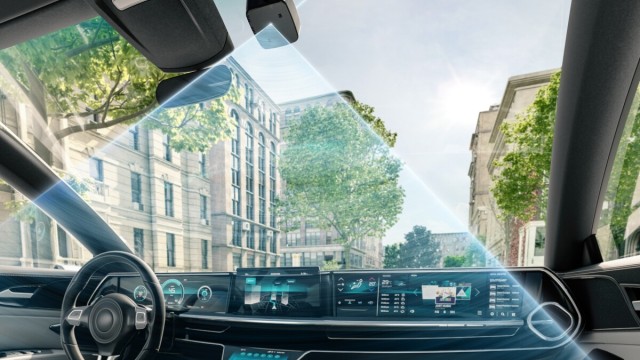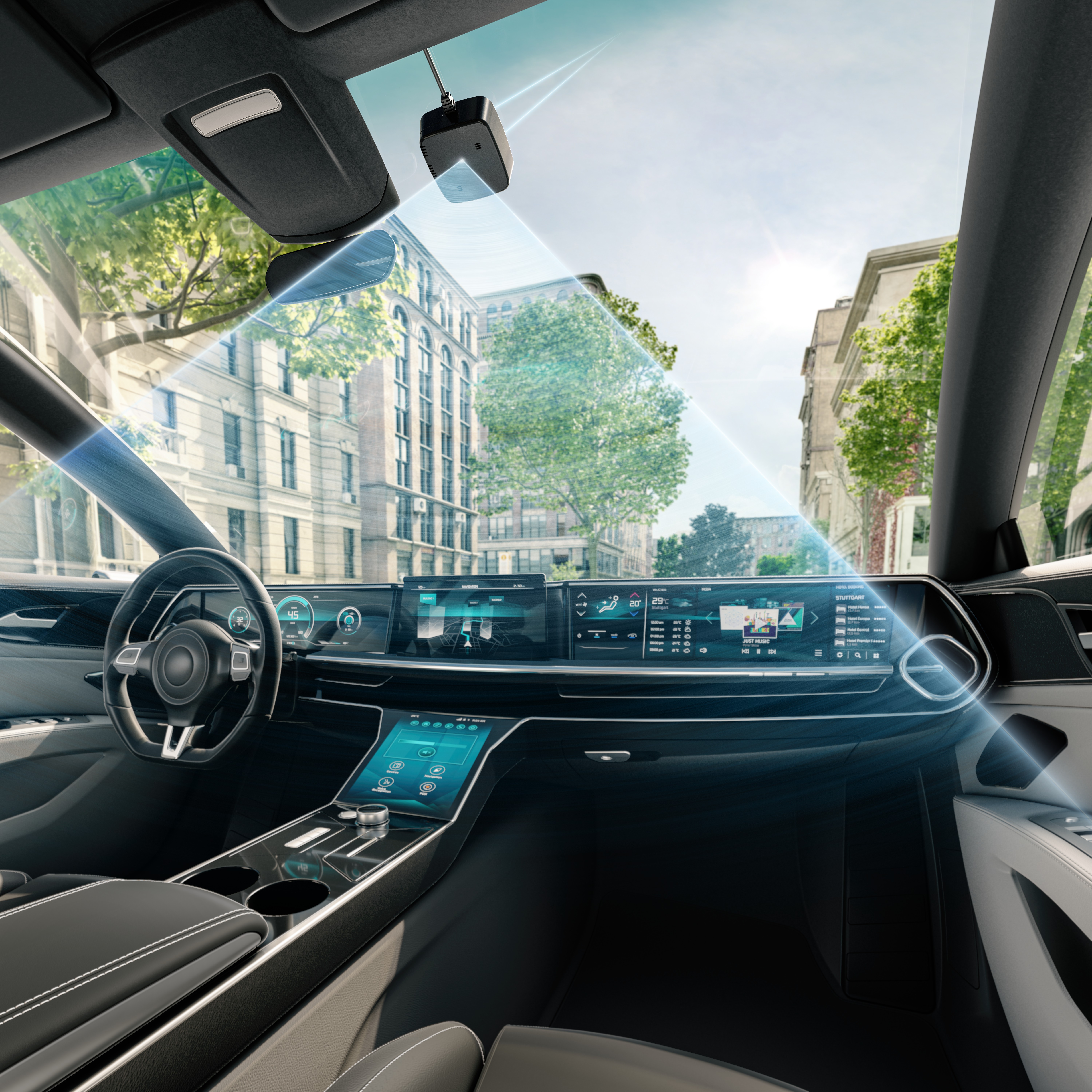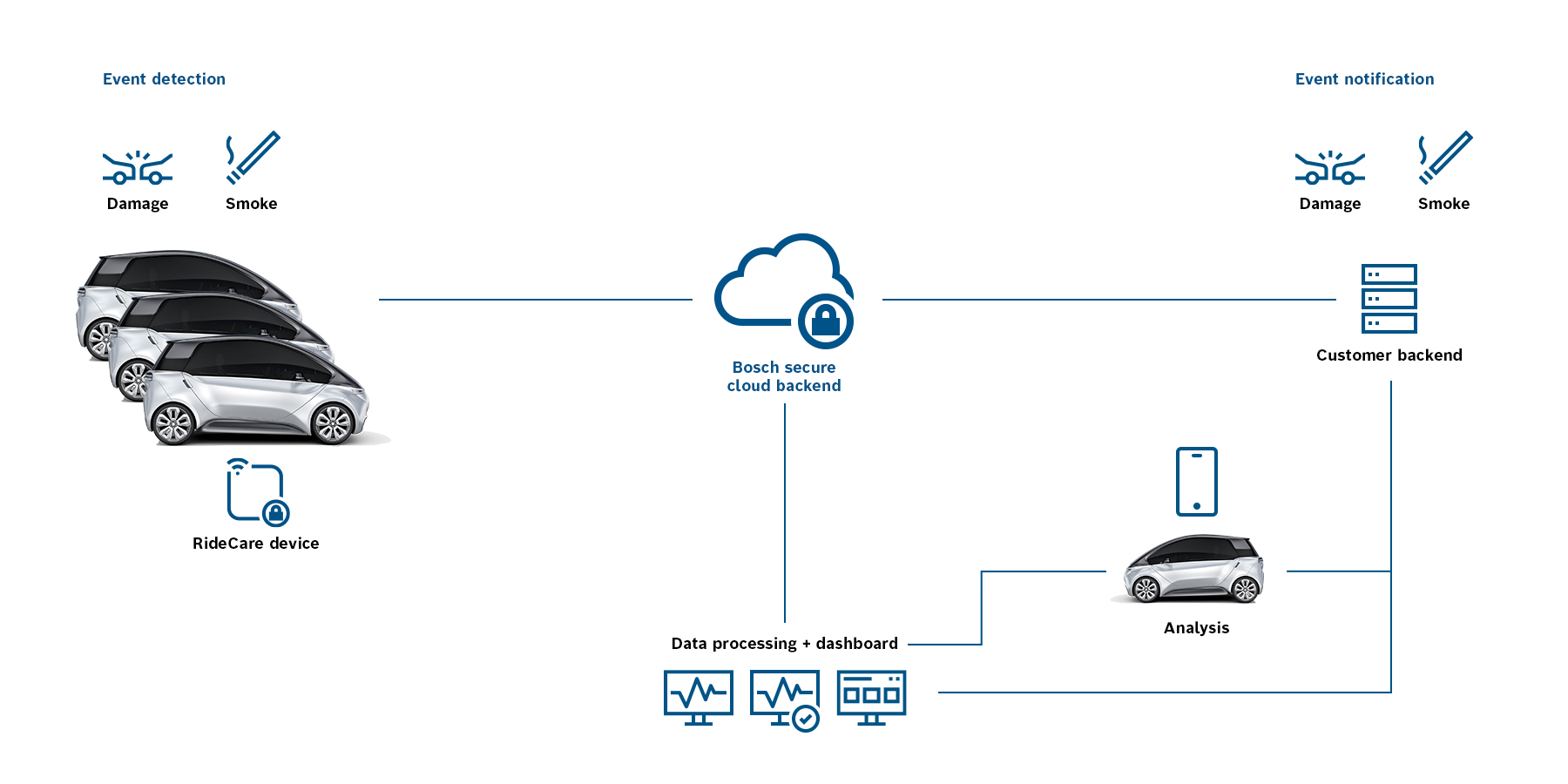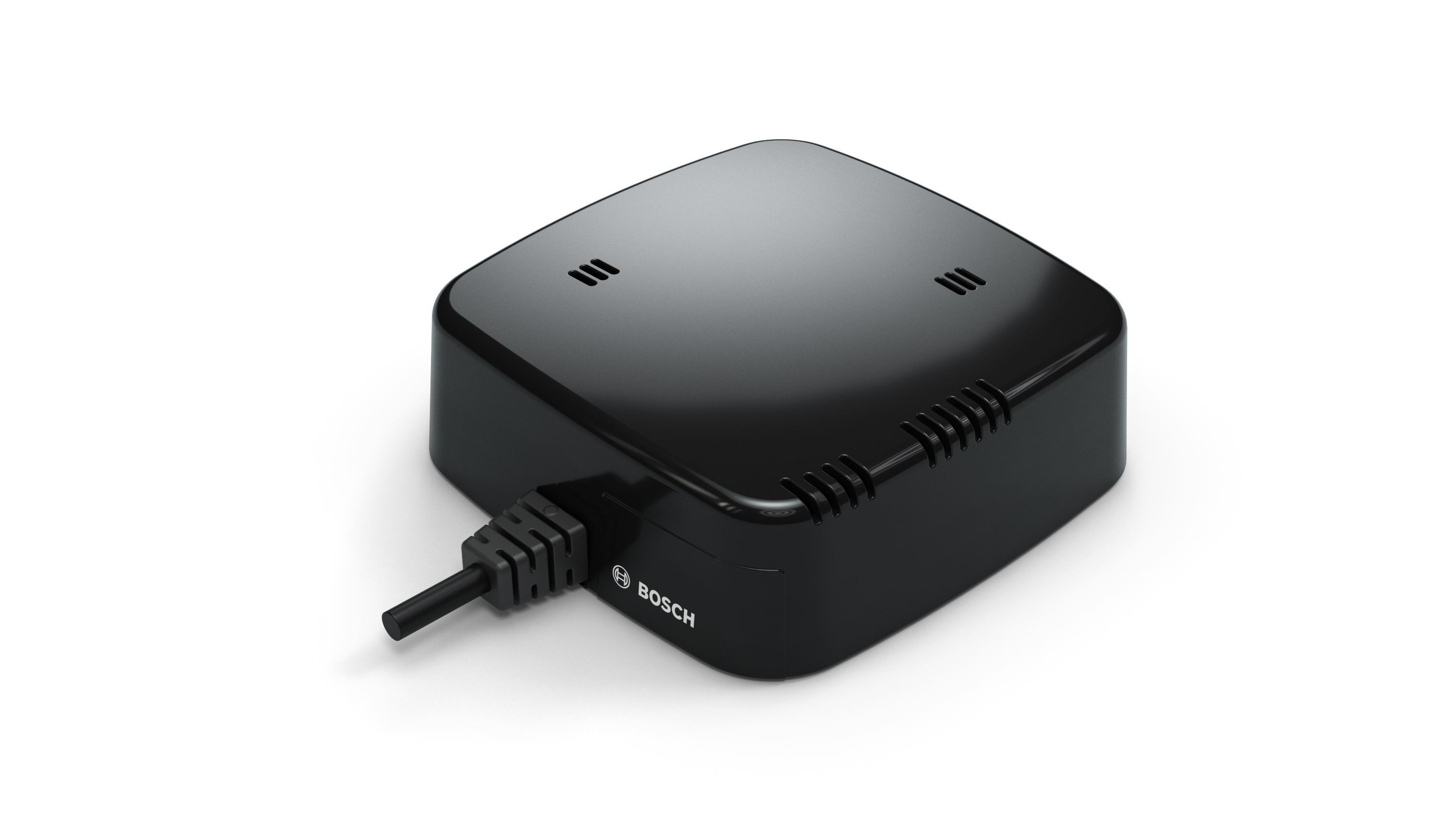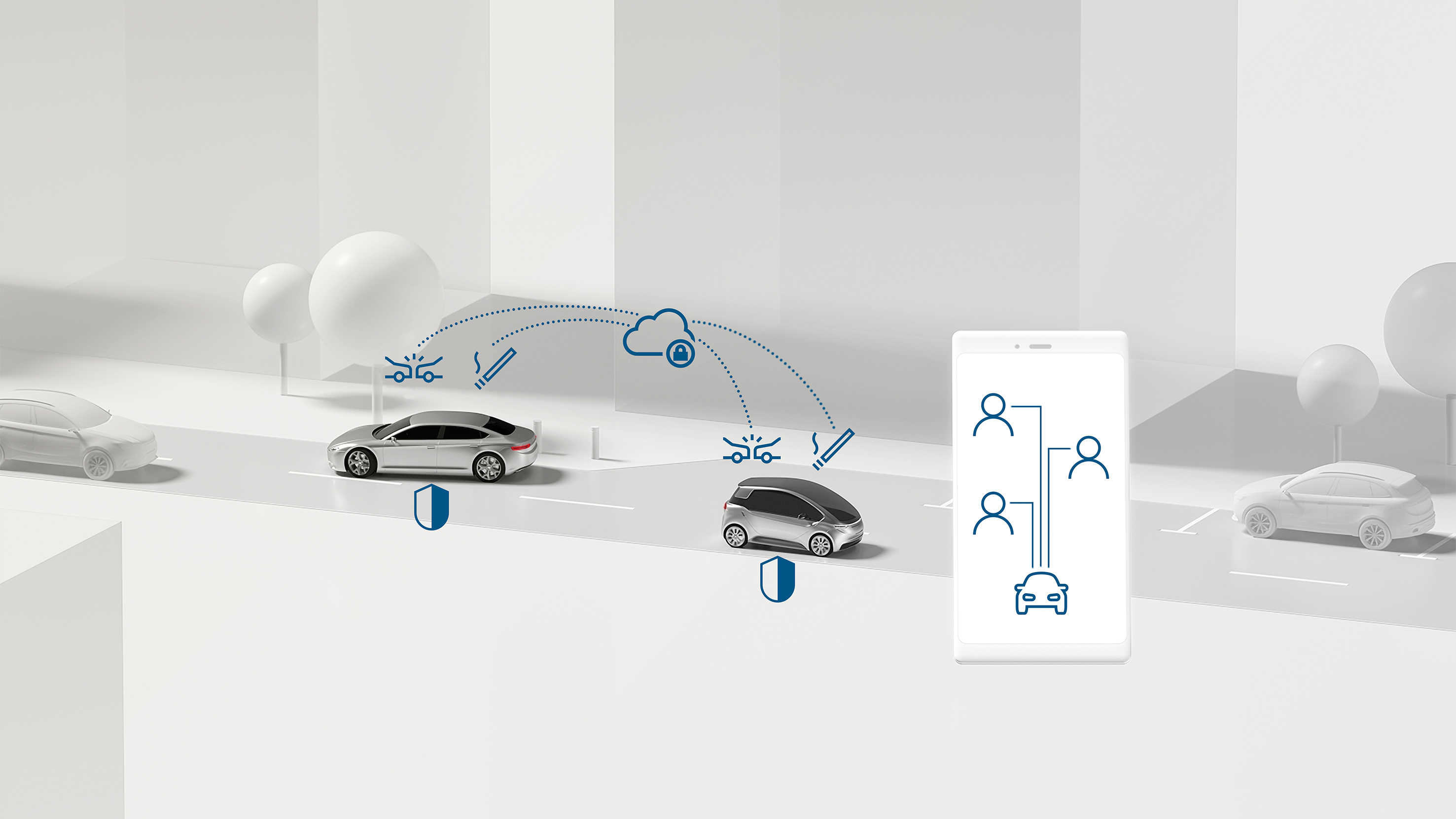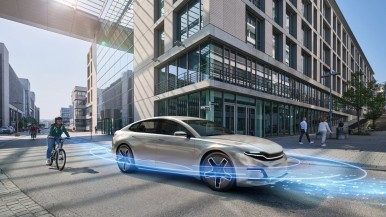Stuttgart, Germany – People who use shared vehicles expect their car to be roadworthy, and not to smell of smoke. It is more than annoying when a vehicle is scratched and dented or someone has smoked in it. Thanks to the new Ridecare solutions Bosch is developing for fleet operators and mobility service providers, this will soon be a thing of the past. The aim is an even safer and more pleasant ride for every user. The first standard Ridecare feature is smoke and damage detection. For this, Bosch combines a sensor box in the vehicle with cloud-based data analysis using artificial intelligence. This allows sharing providers to receive important, easily understood information in real time on whether a vehicle has been damaged or someone has smoked in it. Repairs or cleaning can then be carried out more quickly and more in line with demand, optimizing fleet management. “In carsharing, one of the main keys to customer satisfaction is to ensure users have a safe and pleasant driving experience at all times. With its Ridecare solutions, Bosch is setting a new standard for an even better customer experience in the sharing market,” says Harald Kroeger, member of the board of management of Robert Bosch GmbH. The supplier of technology and services is currently working on pilot projects with leading sharing providers in Asia, North America, and Germany with a view to launching a production version of its smoke and damage detection system. Bosch also recently received official approval for this system from TÜV Süd, including a confirmation of the reliability of these fleet services.
Bosch ridecare solutions website
Mobility is the largest Bosch Group business sector. It generated sales of 55.8 billion euros in 2024, and thus contributed around 62 percent of total sales. This makes the Bosch Group one of the leading mobility suppliers. Bosch Mobility pursues a vision of mobility that is safe, sustainable, and exciting. For its customers, the outcome is integrated mobility solutions. The business sector’s main areas of activity are electrification, software and services, semiconductors and sensors, vehicle computers, advanced driver assistance systems, systems for vehicle dynamics control, repair-shop concepts, as well as technology and services for the automotive aftermarket and fleets. Bosch is synonymous with important automotive innovations, such as electronic engine management, the ESP anti-skid system, and common-rail diesel technology.
The Bosch Group is a leading global supplier of technology and services. It employs roughly 412,000 associates worldwide (as of December 31, 2025). According to preliminary figures, the company generated sales of 91 billion euros in 2025. Its operations are divided into four business sectors: Mobility, Industrial Technology, Consumer Goods, and Energy and Building Technology. With its business activities, the company aims to use technology to help shape universal trends such as automation, electrification, digitalization, connectivity, and an orientation to sustainability. In this context, Bosch’s broad diversification across regions and industries strengthens its innovativeness and robustness. Bosch uses its proven expertise in sensor technology, software, and services to offer customers cross-domain solutions from a single source. It also applies its expertise in connectivity and artificial intelligence in order to develop and manufacture user-friendly, sustainable products. With technology that is “Invented for life,” Bosch wants to help improve quality of life and conserve natural resources. The Bosch Group comprises Robert Bosch GmbH and its roughly 490 subsidiary and regional companies in over 60 countries. Including sales and service partners, Bosch’s global manufacturing, engineering, and sales network covers nearly every country in the world. Bosch’s innovative strength is key to the company’s further development. At 136 locations across the globe, Bosch employs some 82,000 associates in research and development.
Additional information is available online at www.bosch.com, www.bosch-press.com.
